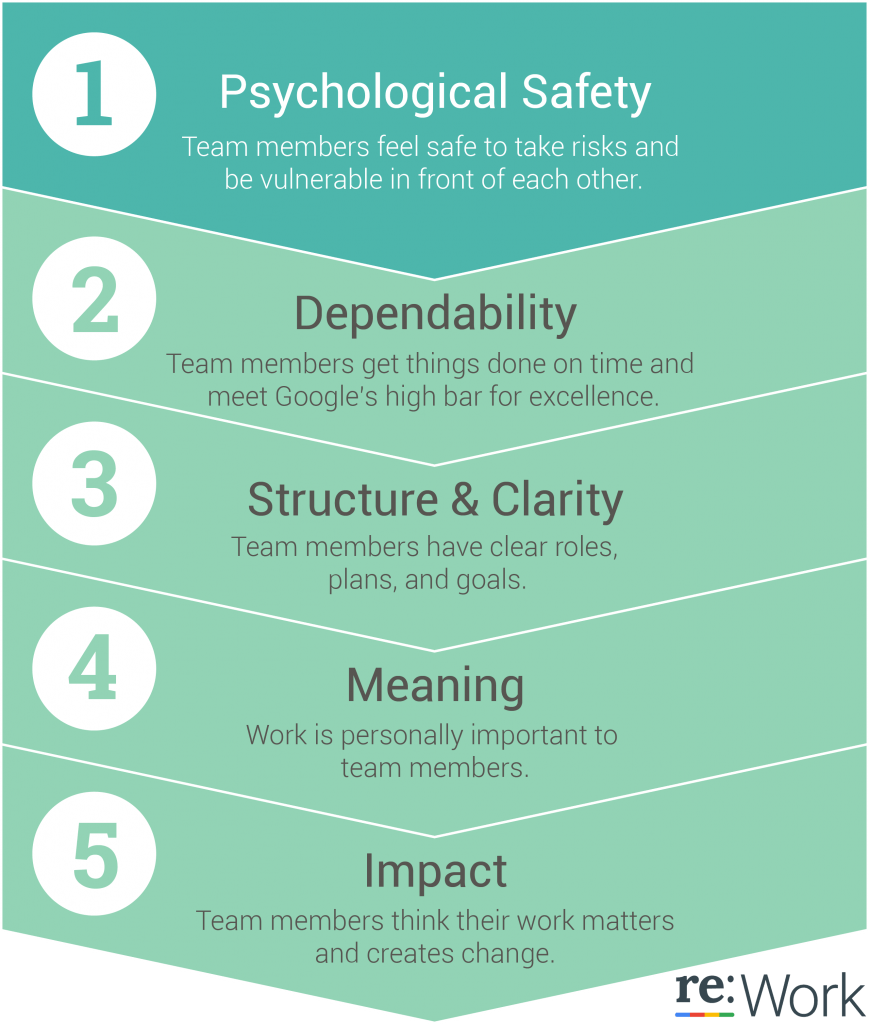I do a lot of work facilitating meetings and groups, and one of the things I really notice is that teams that have a strong foundation of respect and support for each other, are the ones that thrive. By ‘thrive’ I mean they share a common purpose, value each other’s contribution, and trust that they have the support of those around them. But are my observations borne out by the research?
Over a period of two years, researchers at Google analysed more than 180 teams and interviewed hundreds of employees to find the recipe behind the ‘dream team’. The popular view was that a really effective team is one that would have a couple of PhDs, a Rhodes Scholar an engineer and a couple of extroverts.
Their findings could not have been further from their initial assumptions. The secret to a high-performing team lies less in the individuals that make it up, and more in the wider team dynamics:
“Who is on a team matters less than how the team members interact, structure their work, and view their contributions.”
High-performing teams, they found, almost always displayed five characteristics:
Psychological safety enables team members to take risks without fear of retribution. This, in turn, means people feel they can be more creative and challenge the status quo. Flowing on from this feeling of safety are the scaffolds of dependability, clarity, meaning and impact. Leith and I are going to be incorporating this work into our upcoming Peter Cullen Trust Program and I will also be using it in the Waterway Twinning Management Program I facilitate in partnership with the Glenelg Hopkins Catchment Management Authority.
I was fortunate to visit the Google Mountain View campus a few years ago as my brother-in-law and his wife work for the company. It is a great place to explore and I loved the ‘vibe’ of the campus. It will be interesting to ask them if the findings of this research result in changes.
Siwan 🙂
This article is based on Stephanie Thomson’s piece in the World Economic Forum blog.

